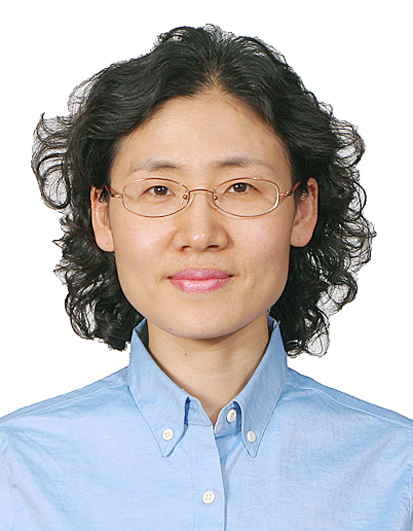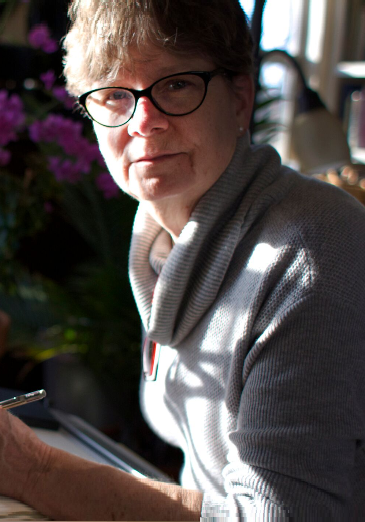Research Spotlight on Women Faculty: Min-Joo Kim & Susan Tomlinson
March 3, 2020 |
During March, Texas Tech is celebrating women faculty who exemplify excellence in research, scholarship, creative activity, teaching, and mentoring.
Min-Joo Kim
Associate Professor, Department of English
 Dr. Kim specializes in theoretical syntax, semantics, and their interface. She also
has secondary research interests and expertise in language acquisition, pragmatics,
and grammaticalization.
Dr. Kim specializes in theoretical syntax, semantics, and their interface. She also
has secondary research interests and expertise in language acquisition, pragmatics,
and grammaticalization.
What inspired you to work in your field/area of expertise?
The intellectual curiosity and the joy that comes with solving puzzles. I'm a linguist specializing in formal syntax and semantics, and the analytic nature of this field agrees with me very well. Growing up, I always excelled in any type of language learning. But I never expected to become a linguist. It sort of happened accidentally, as I was pursuing a slightly different path. Yet looking back, one can perhaps say that it was meant to be, given how my area of expertise truly defines who I am. Language is what connects all of us humans, and one can look at it through the lens of literature, communication, psychology, and/or philosophy of mind (to name a few other related disciplines). But a formal linguist like myself looks at it through the lens of structure, with the view to accounting for how linguistic communication is possible based on the mapping between form and meaning. Such a mathematical way of looking at language is truly fascinating to me, and while living as a linguist, I can still enjoy literature and other related disciplines (especially philosophy and logic) if not more.
Who inspired you to pursue academia?
I'd say it was my parents. Neither of them went to college, but they were really keen about our education and were extremely supportive of us. My father always emphasized the importance of reading and writing when I was little, and helped me develop a good work ethic and self-discipline. He was also an avid reader himself, setting a great example for us to follow. My mother, on the other hand, taught me the importance of self-actualization. She was a housewife herself, but not a traditional one in the sense that she'd tell me that it's okay to remain single and just pursue my career instead (although I could consider adopting a child). This can come as a bit of surprise, considering my cultural background and the fact that I was her first child and the only daughter she had. Thanks largely to the values my parents ingrained in me, I didn't get married until I turned almost 36, and all I did until then was to be in school. And for quite some time, I was lost, but not too long, and here I am, knowing who am and what I want to pursue in my life.
What would you tell your female students interested in pursuing an academic career?
I'd say pursue your dreams at all costs and always follow your heart. To succeed in academia, one must be tenacious too, but what drives us in this 'business' is our love for what we do. So, first, find out what you love. Once you've found your niche, your hard work follows automatically. One other thing I'd like to share with the younger generation is that we all fall and will receive many rejection letters, be they coming from a job application or an academic journal. But one thing we shouldn't forget whenever self-doubt is about to hit us is why we chose this field to begin with. In my case, whenever I feel low about myself, realizing how little I know and how small I am in this vast field of linguistics, I always try to remind myself that I am here because I love what I do, and I'll know a little more tomorrow because I have worked hard today. So, just "keep calm and press on". At the end of the day, all that matters is that you have loved yourself and what you do, and you have learned a lot doing it.

Susan Tomlinson
Assistant Dean; Associate Professor; Director of Admissions; President's Administrative
Fellow, Honors College
 Dr. Susan Tomlinson has a BFA in Studio Art, and an MS and Ph.D. in Geology from Texas
Tech University. She teaches interdisciplinary studies in nature and the arts as part
of the Honors College's Environment and the Humanities Program (EVHM).
Dr. Susan Tomlinson has a BFA in Studio Art, and an MS and Ph.D. in Geology from Texas
Tech University. She teaches interdisciplinary studies in nature and the arts as part
of the Honors College's Environment and the Humanities Program (EVHM).
What inspired you to work in your field/area of expertise?
I have always been interested in science, art, and the outside world. Over the years, pursuing these interests led me to drawing as a means of teaching students observation skills. In the course of doing that, I fell in love with botanical art, which brings all of these worlds together in a way that is meaningful, relevant, and beautiful.
Who inspired you to pursue academia?
A geologist for whom I worked, and the first class I taught as a graduate student. I had always been interested in science, and the geologist encouraged me to go back to school to get a masters degree. As a graduate student I was hired as a teaching assistant, and at the end of the first day of class, I knew I wanted to be a teacher and that I wanted to teach college students.
What would you tell your female students interested in pursuing an academic career?
It is a wonderful job for pursuing the things that interest you intellectually and can provide you with the sense you are doing something meaningful with your life, but it is also a job, and has it pitfalls and challenges, like any other. They should find a good female mentor to help them navigate the waters.
Office of Research & Innovation
-
Address
Texas Tech University, 2500 Broadway, Box 41075 Lubbock, TX 79409 -
Phone
806.742.3905 -
Email
vpr.communications@ttu.edu
